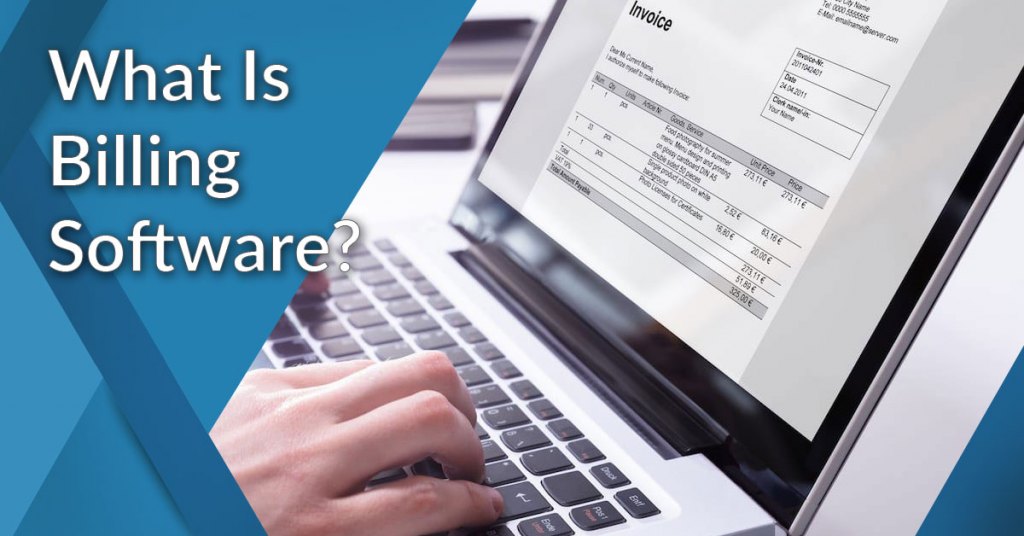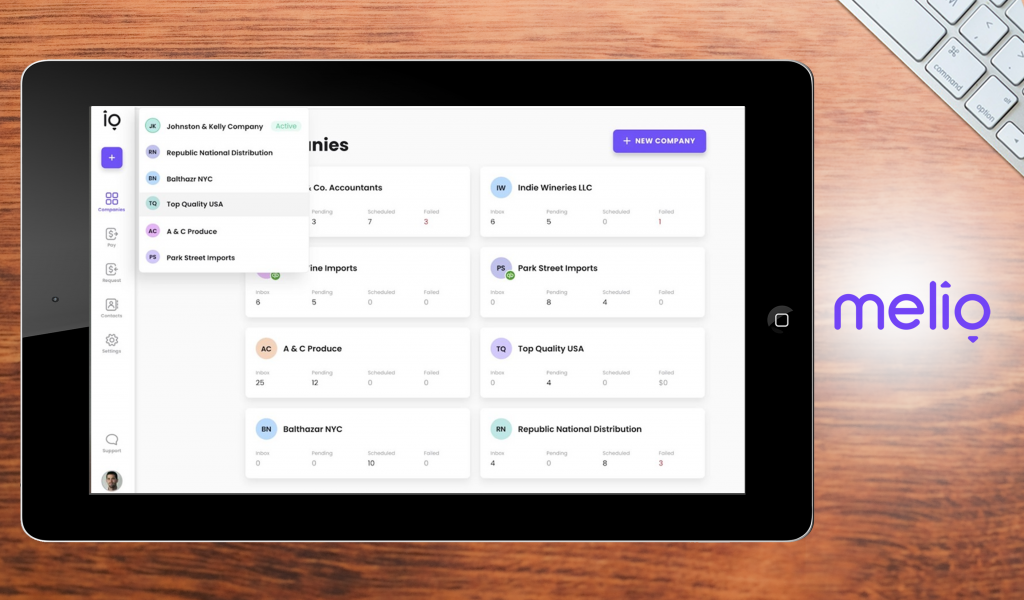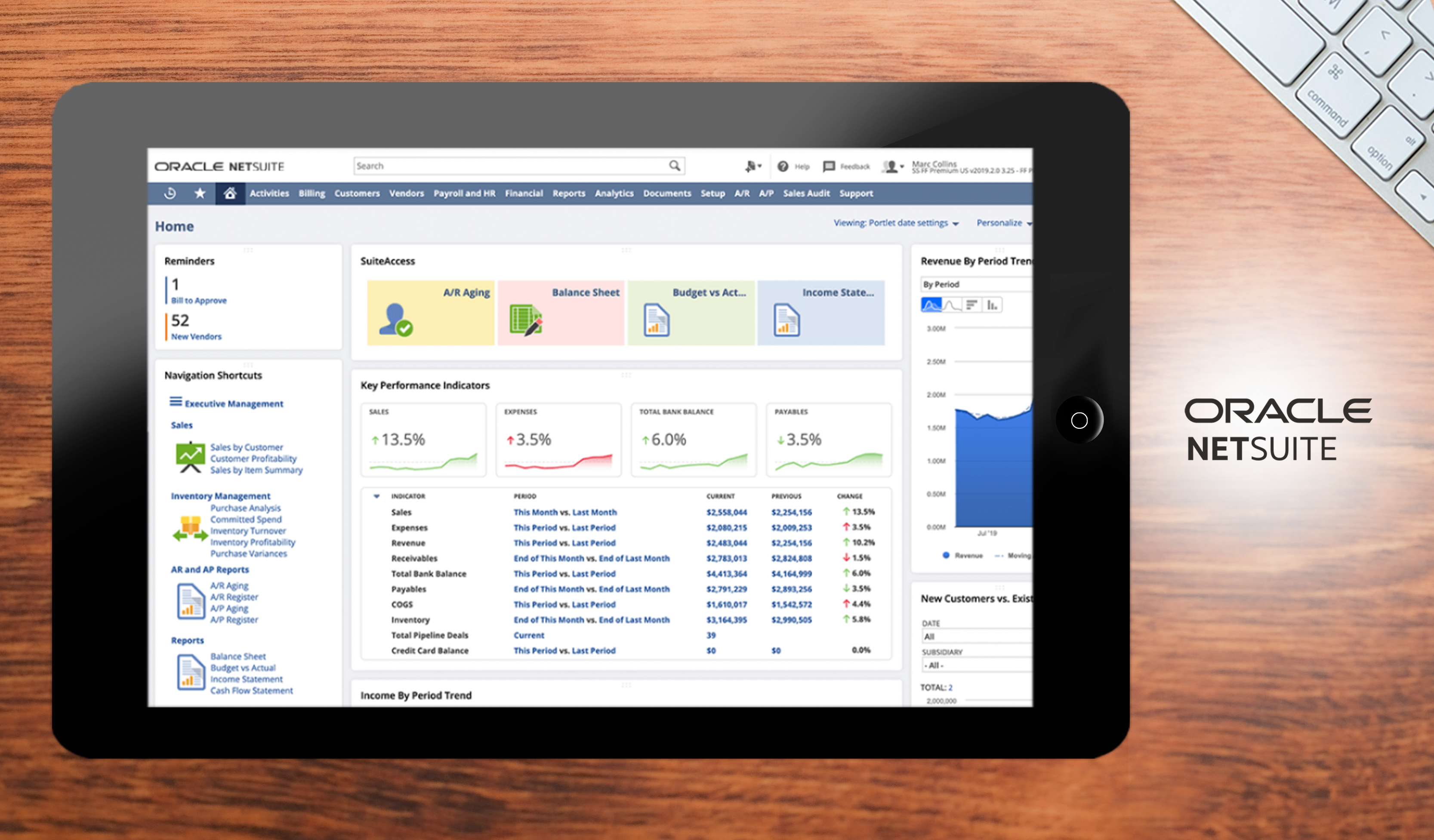A billing software is a piece of technology that allows businesses to manage and automate financial-related tasks, such as invoicing, collecting payments, and filing tax returns. Additionally, the system helps provide accurate financial records and reduces human errors due to manual data entry.
Whether you are running a brick-and-mortar retail shop or an ecommerce store, streamlining the cash flow of your business is no easy feat. Generating invoices and receiving payments on time can be challenging, especially if you are still using spreadsheets, word processing applications, and other manual processes rather than dedicated billing software.
Think about it—with manual billing processes, you are more likely to encounter issues of duplicate payments, overpayments, late payment penalties, and even missed discounts that can make you lose loyal customers. An outdated billing technology is more time-consuming and prone to human error, and it only brings problem after problem when it comes to developing quotes, tracking unpaid invoices, calculating basic tax, and revenue reporting.
In this article, we will introduce you to modern billing software solutions and the numerous benefits they bring to businesses of all sizes. The article also provides a detailed discussion on the definition of billing software, its features, examples, and what to consider when implementing such a system for your business.

Guide to Billing Software Table of Contents
Thanks to recent technological developments, businesses currently have a wider selection of modern tools that can help the growth of their organizations. In today’s digital era, automation plays a central role in many aspects of business operations, from sales process automation and marketing to billing and invoicing.
According to a recent report by the World Economic Forum, 84% of business leaders have expressed their plans to accelerate digitization processes through the use of automation and digital business tools. Meanwhile, 50% of employers are turning to automation to improve efficiency and productivity for their business.
Planned Business Adaptation in the Coming Years
According to Business Leaders
Accelerate the digitalization of work processes: 84%
Accelerate the digitalization of work processes
84%Provide more opportunities to work remotely: 83%
Provide more opportunities to work remotely
83%Accelerate automation of tasks: 50%
Accelerate automation of tasks
50%Source: World Economic Forum (2020)
Designed byAs such, automation in billing processes is a key trend among many businesses today. By automating billing processes, businesses are able to send out invoices and collect payments on time. Additionally, an automated billing system makes it easier to keep track of sales and record each customer’s outstanding balances.
Regardless of the size of your business, there are plenty of billing solutions that can drive operational efficiency and profitability for your business. In this comprehensive guide, we will help you choose the right billing software that can keep your company running at peak performance.
Definition of Billing Software
So what is a good billing software definition? What is billing software exactly?
To start, a billing software is a piece of technology that allows you to perform basic accounting and financial tasks, such as generating and sending invoices, collecting payments from customers, and calculating taxes.
This billing software meaning directly reflects how it is typically used to keep a record of billable products and services delivered to customers. To simplify your billing processes, modern billing solutions come with a stack of features that make invoicing and payment collection much easier for your business.
Basically, this piece of software helps you to reduce the amount of paperwork needed in your billing and invoicing operations. Most of the billing software available today often provide pre-built templates that you can use to generate timesheets, invoices, and expense reports.
To best answer the question of what is billing software, think about it in this way: instead of using spreadsheets, word processing applications, and other manual processes, billing solutions fully automate core billing functions, such as amount due calculation and collection, financial reporting, and revenue management.
In most cases, both billing and invoicing functions are found in a single system, enabling businesses to easily track the status of payment receipts from the invoices issued. In this way, you can accumulate customer data from a single source, including the services they rendered and the exact amount they owe your company. With a billing solution in place, you can efficiently collect payments on time and accurately track any overdue payment from your customers.

With Melio, you can easily monitor scheduled, paid, or overdue invoices.
Features of Billing Software
Every business has unique billing needs. Some businesses need to bill their clients depending on the cost of product purchases, while other businesses bill by the total hours they spent working with their clients. Ideally, implementing a billing software should make the whole step-by-step process of requesting payments from customers much less complicated.
So what does a billing software do? At its most basic sense, a billing software is designed to streamline invoicing and payment collection based on your business requirements. Primarily, it helps eliminate manual data entry and ensure that your accounting figures are accurate. Below is a list of some of the most important features of a billing software.
Generating Invoices
Generating invoices is a crucial function of a billing software. With this feature, you can create clean and professional-looking invoices and customize them as needed. Depending on your business requirements, you can add relevant information from your timesheets, projects, and customer records. Most billing software also let you add other details to your invoices, including your brand’s logo, signatures, bill number, and payment terms, among others.
Core Billing Functionality
Essentially, a billing software automates core billing functions, such as pricing and rating, taxation, revenue management, and revenue recognition. It also provides the flexibility to help you launch and monetize consumption, subscription, hybrid or dynamic pricing models quickly and more efficiently.
Invoice Submission
This feature automates the submission of invoices to your customers via email, messaging apps, or other communication platforms. With a billing software, you will be able to send invoices of a product as soon as it is ready.
Financial Reporting
Reporting tools are important in the evaluation of financial data points for your business. Through financial reports, you will have a better understanding of how your business is performing. A billing software with powerful reporting features can yield valuable data on which products are selling more or which brings more revenue. You will also have access to other important financial data, such as the revenue stream of your company or financial challenges that affect your revenue potential.
Billing Record
A billing software also allows you to store and access invoice and bill reports via the cloud anytime and anywhere. In this way, you can easily stay on top of all recurring bills and payments. In just a few clicks, you can access a wealth of information on each of your customers’ financial records, including any outstanding payments that they still owe your company.
Payment Processing
Most billing software today offer payment processing tools, allowing you to facilitate payments right on the dot. This also gives your customers a range of payment options through which they can settle their outstanding balance. Plenty of billing solutions integrate with the top payment gateways and you can likewise accept payments from bank transfers, credit cards, or mobile payments.
Multiple Currency Options
If your business is dealing with international customers on a regular basis, then you might need a billing software that is capable of handling transactions in more than one currency. This lets you record invoices, orders, and quotations and accept payments depending on the preferred currency of your customers. With multi-currency options, it will be much easier for you to convert prices for purchased items from their base price to foreign price and vice-versa.
GST Compliance
A GST-compliant billing software eases the filing of your tax data into the online GST portal. It ensures that you can pay your taxes on time, preventing any penalty or interest for delayed or incomplete tax returns. Especially now that GST systems are mandating online documentations and digitizing their process, having a GST-compliant billing software should help you do tax calculations and let you file your GST returns without any headaches on your part.
Benefits of Billing Software
In today’s highly digitized era, you can hardly find businesses not using billing software to organize and automate their invoicing processes. Given its benefits, more business owners are maximizing the potential of their billing software when it comes to ensuring a fast and consistent payment collection.
To best understand what is a billing software and how you can use one for your business, here are some ways by which a billing software can help you stay on top of your financial-related tasks.
Instant Invoices
Compared to manual processes, generating and customizing invoices are much easier with a billing software. Due to readily available invoice templates, bills and invoices can be created instantly, allowing for a faster submission of invoices to your customers. You can also customize invoices with minimal effort through a billing software, allowing you to save time and cost on your billing processes.
Paperwork Reduction
One of the best answers to the question of why use billing software for your company is this: it remarkably reduces paperwork in billing and invoicing processes. Thanks to the automation technology of billing systems, businesses can do away with tons of paperwork when sending invoices, collecting payments, and recording the financial history of each customer. Moreover, billing systems eliminate manual data entry, improving the accuracy of your cash flow calculations and financial records.
Easier Payment Collection
One of the best ways to avoid financial disasters is making sure that your customers can settle their outstanding balances on time. To keep your company running smoothly and successfully, it is essential for your business to stay on top of your cash flow activities.
Through faster generation and submission of invoices, a billing software ensures that you can receive payments more quickly and on time. Most systems also have notification features that alert your customers to any outstanding balance that they have. In this way, you can easily follow up on late payments and unpaid invoices.
Accessibility of Financial Data
A billing software keeps a record of your company’s financial data and yields insightful analytics about the performance of your business. The system often provides real-time reports and statistics, allowing you to monitor important cash flow activities, such as project costs, revenues, and payments from clients. Additionally, a billing software allows you to generate graphs and charts for better visualization of your company’s financial data.
Accurate Billing
With the help of a billing software, every product purchased from your company or any work you have done for your clients can be billed accurately. An efficient billing solution helps you compile quotes and costs of your products, track billable time, and create invoices for your clients. The system also automatically records any rendered services or sold items, allowing you to easily keep track of the total payment that your clients need to settle. By automating billing tasks, the system helps you reduce the chances of human error.

QuickBooks Online lets you view your expenses clearly, for inclusion in your billing, perhaps.
Examples of Billing Software
For any kind of business, billing can be a tedious process. After all, the billing process does not end with sending invoices to customers—most likely, you have to constantly alert customers and send follow-up emails and reminders regarding their outstanding balances. Additionally, you need to facilitate payments depending on your clients’ preferred payment method.
Thus, implementing a billing software can make or break your business. To help you choose the best system for your company, here are some examples of billing software that you may want to consider.
Melio
Melio is a cloud-based accounts payable software that lets you pay your bills and collect payments via bank transfers, credit cards, debit, or mobile payment options. Ideal for small businesses, the software helps you manage bill payments, track vendor payments, and maintain cash flow. Melio also offers flexible payment options, making it easier for you to pay your own bills or get paid by your clients.
Even better, Melio is a free solution that you can instantly use on the web whenever necessary. With the software’s payment management features, you can easily take control of your cash flow and access your financial records any time and anywhere using your personal device, whether on a laptop, iPad, or mobile phone. In addition, Melio syncs with different types of accounting solutions, such as Freshbooks, QuickBooks Desktop, and QuickBooks Online, enabling you to manage payments from multiple platforms.
QuickBooks
QuickBooks Online is an accounting software that’s ideal for startups, small businesses, independent accounting firms, and freelance bookkeepers. It provides a range of accounting tools to help businesses streamline invoice management, tax calculations, expense tracking, and sales monitoring. QuickBooks Online also provides bank-level security to your data to ensure that your financial records are safe from potential data breaches.
Additionally, the software helps you keep your accounts organized in the cloud. From just one solution, you can send invoices, track sales, and monitor your company’s financial performance. With your financial data on-hand at all times, you will be able to make better and smarter business decisions. Through QuickBooks Online, you can also access bank balances, accounting and expenses reports, and other important financial information.
NetSuite
Coming from NetSuite’s line of products, NetSuite ERP is an end-to-end billing management software that helps businesses streamline their invoicing and billing tasks. The software offers plenty of billing tools like SuiteBilling, enabling you to accelerate payments and improve the cash flow of your company. NetSuite ERP’s SuiteBilling provides multiple pricing and billing options to meet the needs and expectations of your clients.
With NetSuite ERP’s SuiteBilling, you can set billing schedules and automatically send invoices to your customers. For instance, you can schedule real-time, future-dated, and back-dated invoices to make sure that all your invoices get paid by your clients. As an automated billing solution, you can automatically invoice your clients depending on your pricing requirements, whether usage-based, one-time bill, or volume pricing and combination plans.
Types of Billing Software
Depending on the type of business that you have, there could be tons of financial tasks that you have to accomplish as part of your day-to-day workflow. Essentially, a billing software is meant to ease your processes, from invoicing to expense tracking and facilitating client payments.
But before choosing a billing software for your company, it is also important to know the different types of billing software. There are mainly two categories to choose from: standalone or integrated billing software.
- Standalone billing software – A standalone system mainly offers billing tools, such as customizable invoices, payment reminders, and localized payment gateways. This is ideal for startups, small businesses, and freelancers who require basic billing features.
- Integrated billing software – Compared to a standalone billing software, most integrated billing tools are often bundled with accounting solutions that can perform more advanced financial tasks, such as bookkeeping, general ledger, and financial reporting. This type of billing software is most useful for businesses that handle a large volume of finance and accounting tasks on a daily basis.
Additionally, you can choose a billing software depending on its pricing tiers or by deployment type. In terms of pricing, you can choose from the following types:
- Freemium – With freemium billing software, you can access basic or limited features at no subscription cost or installation fees. In case you want to scale your billing operations, though, you will have to pay for the additional features that your business requires.
- Licensed – This type of billing software often requires a one-time perpetual licensing fee that allows you to use the software for as long as you need it. In some cases, the vendor asks for an annual fee that gives you eligibility to receive software maintenance, support, and updates.
- Based Monthly – Most billing software available in the market today are offered on a monthly pricing basis, wherein you have to renew your subscription for every month that you intend to use the software. Some vendors also offer annual pricing, which allows you to pay yearly for the solution and gives you access to its features for an entire year.
- Based Per Transaction – If you think your business only needs billing tools from time to time, you can opt for a billing solution that charges you only for each transaction. In most cases, this is a more affordable option since you will not have to pay monthly or annually for a billing software that you will barely use.
When it comes to deployment, there are basically two types of billing software: cloud-based and on-premise. Here are more details about each type of billing solution:
- Cloud-based billing software – A cloud-based billing software stores your data via its virtual servers, which allows you to access the application via the web. With a cloud-based billing software, you can manage your cash flow, send invoices, and bill your clients anytime and anywhere.
- On-premise billing software – On the other hand, an on-premise billing software requires installation on your device, whether on laptop, tablets, or mobile phones. Compared to a web-based solution, on-premise billing solutions generally offer greater security for your financial data since they run on local servers where you have total control of user access policies.

NetSuite ERP is more than just the ability to bill clients and customers, but, as its name says, do full accounting as well.
Buying Factors to Consider
Choosing the right billing software for your company is not a simple task. Firstly, there are a lot of factors that you have to consider. Do you want a more advanced software with end-to-end capabilities, or is your business more fitting for a simple solution that can accommodate basic tasks? Also, you have to factor in the cost of the billing software—does it provide value for your money, or are you actually spending more than what you’re getting in return in terms of the software’s efficiency?
Whether you are looking to replace your existing billing solution or are investing in a new tool, here are some of the most important factors that you have to consider before buying a billing software.
Usability
In most cases, usability is all about personal preferences. However, you have to take into account certain usability features when it comes to choosing a billing software. For instance, you have to pay attention to the software’s user interface and make sure that everything can be easily navigated.
In billing and invoicing tasks, the numbers are complicated enough, so you do not want a system that makes the process much more so. With an easy-to-understand and intuitive user interface, you can easily find the features that you need and complete billing and invoicing tasks much more quickly.
Simplicity
In the billing process, you are likely to encounter complicated billing math in every transaction. For example, you have to calculate the total price for a billing period, determine how much tax you need to charge or take into account any discount that your customers availed. Thus, a good system should be able to fulfill the main purpose of billing software, which is to make all your billing processes simpler and more efficient.
Global Compliance
One of the most useful features that you can find in a billing software is its global compliance. Since the guidelines and regulations for international and domestic ecommerce are constantly changing, it would be ideal to find a software that complies and stays on top of every new rule.
Specifically, a GDPR-compliant solution allows you to smoothly conduct businesses with European Union-based clients. Also, a billing software in compliance with the Payment Card Industry Data Security Standard, or PCI DSS, ensures protection for your customers’ data whenever they use your online services.
Third-Party Integrations
Integrating your billing software with other business apps makes sure that your financial data is right where it needs to be when you need to make informed business decisions. With third-party integrations, you will be able to access payment data, monitor billing and contract cycles, and manage invoice delivery from multiple accounting platforms. Integrations with well-known payment processors can also help you facilitate payments more quickly and easily.
Pricing of Billing Software
Billing systems play a vital role in managing invoices and ensuring that businesses can get their payments on time. Hence, investing on a billing software for your business can improve your efficiency and yield faster ROIs for your company.
To give you an idea of the cost of billing software, we prepared this pricing list for the top billing platforms in the niche.
- Melio. Melio is a free billing software that allows you to pay your bills or collect payments on a web-based platform. However, credit card payments are charged with a 2.9% fee. For international transfer, you will be charged $20 per transaction.
- QuickBooks Online. Pricing for QuickBooks Online ranges from $7.50/month to $180/month. With a QuickBooks Online subscription, you can track your company’s income and expenses, manage invoices, and accept payments from your clients.
- NetSuite ERP. NetSuite ERP’s SuiteBilling’s pricing plans are available on a by-quote basis. The software can be purchased through an annual license fee, which comes with optional modules, the core platform, and a specific number of users. Also, NetSuite ERP’s SuiteBilling charges a one-time implementation fee.
- FreshBooks. Pricing plans for FreshBooks range from $6/month to $360/month. You can choose from various subscriptions, which all include invoice management, expense tracking, and bill payments among others.
- Salesforce CPQ. To purchase Salesforce CPQ, you can choose from its CPQ and CPQ Plus editions, which cost $75/user/month and $150/user/month, respectively. In case your business requires more advanced billing and invoicing features, you can also avail of the software’s CPQ & Billing Growth and CPQ & Billing Plus editions, which are both offered on quote-based pricing.
Potential Issues of Billing Software
Businesses rely on billing solutions to simplify their whole payment collection processes. With an effective billing software in place, you can accomplish billing and invoicing tasks easily. Generating invoices and facilitating payments are made easier with billing solutions, allowing you to improve your cash flow and save both time and billing costs.
However, not all billing solutions are created equal. As you search for the right billing software for your business, you may find some systems that offer more and better functionalities than others. When picking the best system for your company, you also have to consider the following issues that you may come across. In this way, you will be prepared to handle them and avoid them in the early stages of implementation.
Unscalable Billing Infrastructure
As your business grows and you experience a growing number of customers, it only follows that your billing and invoice requirements will become more complex. You will have to take into account every additional customer, pricing changes, flexible billing, and other client requests, which would eventually add to the complexity of your billing tasks.
If your billing solution is unscalable, then it will be twice as difficult for you to meet the increased demands of your growing business. Most likely, you will have to find another solution and go through another implementation and onboarding process, which could both be costly and time-consuming.
To prevent such a scenario, make sure that your chosen billing software is scalable and can increase its capacity and functionalities based on your business requirements.
Incomplete Financial Records
To efficiently manage your cash flow, it is important to keep a record of your financial statements, including your balance sheets, income statements, and tax returns. In the event that you cannot access any important financial data that you need, chances are, it will be hard for you to get a clearer picture of how well your business is doing or which issues need immediate attention.
Thus, choosing a billing software with complete financial reporting and secure data storage should help you prepare accurate financial statements. With your complete financial data readily accessible at all times, you can easily monitor the progress of your business and comply with your tax obligations as necessary.
Latest Trends in Billing Software
In recent years, many businesses from various industries have discovered the benefits of implementing billing software. For many companies, whether large or small, cloud-based billing solutions provide a unified approach to managing client payments and keeping track of invoices.
As a result, the billing software market is gearing up year after year and seeing enormous growth and adoption by small to large organizations. According to a recent report by Brodmin, the global e-invoicing market is set to grow to $24.7 billion by 2027.
To stay ahead of the curve, it is important to consider the technological developments that can help you deliver more efficient services to your clients. Below are some of the latest trends in the billing industry that you may want to consider.
Mobile Invoicing
Based on the latest e-invoicing trends, mobile invoicing is increasingly becoming popular among many businesses. Through mobile invoicing, businesses now have a faster and more convenient way to bill their clients and collect payments more quickly and securely. Most mobile invoicing apps also enable businesses to manage and keep track of their cash flow on the go.
Cloud-based Billing
Due to the countless advantages of billing software, more businesses are investing in cloud billing services today. Thanks to cloud-based billing solutions, businesses are able to manage payments and invoices more efficiently. With the help of cloud computing technology, online billing also provides businesses with simpler and more accurate auditing, which includes the calculation of recurring billings, subscription-based payments, and monthly income financial reports.
The Answer to Complex Billing Processes
Whether you are a freelancer, a small-business owner, or a manager of a larger enterprise, investing in a billing software can transform the way you handle invoicing and payment collection for your business. After all, there is no point running a business if you are not getting paid on time, which would only lead to negative impacts on your cash flow and business operations.
With a billing software effectively in place, you will no longer have to worry about this possibility—instead, you can focus on other productive tasks to keep your business running more smoothly and successfully.
For more ideas on improving financial management for your business, it is also helpful to look at the latest accounting trends and maximize the potential of advanced solutions for billing, invoicing, and accounting.
Key Insights
- Automation and Efficiency: Billing software automates invoicing and payment collection, reducing manual data entry and minimizing human errors, thus streamlining financial operations.
- Customization and Flexibility: Modern billing software provides customizable invoice templates, supports multiple pricing models, and offers flexible payment options, making it adaptable to various business needs.
- Improved Cash Flow Management: Automated systems ensure timely invoice submission and payment collection, enhancing cash flow management and reducing the likelihood of financial discrepancies.
- Comprehensive Financial Reporting: Billing software includes robust reporting tools that provide real-time insights into financial performance, helping businesses make informed decisions.
- Scalability and Integration: Effective billing solutions are scalable to accommodate business growth and integrate with other business applications, ensuring seamless financial management.
- Compliance and Security: Advanced billing software complies with global financial regulations and standards, ensuring data security and protection against breaches.
FAQ
- What are the key benefits of using billing software for a business? Billing software offers numerous benefits, including automation of invoicing and payment collection, improved accuracy in financial records, enhanced cash flow management, and comprehensive financial reporting. It also reduces the time and effort spent on manual billing processes and minimizes human errors.
- How does billing software improve the invoicing process? Billing software streamlines the invoicing process by providing customizable invoice templates, automating invoice generation, and allowing for quick submission of invoices via email or other communication platforms. This results in faster and more accurate billing, ensuring timely payment collection.
- What features should I look for in a billing software? When choosing billing software, look for features such as invoice generation, core billing functionality, financial reporting, payment processing, multiple currency options, and GST compliance. Additionally, consider the software’s scalability, integration capabilities, and ease of use.
- Can billing software handle multiple currencies? Yes, many billing software solutions offer multiple currency options, allowing businesses to manage transactions with international customers. This feature enables the recording of invoices, orders, and quotations in various currencies and facilitates accurate conversion and payment processing.
- How does billing software ensure compliance with financial regulations? Advanced billing software ensures compliance with financial regulations by adhering to global standards such as GDPR and PCI DSS. These solutions also provide features for GST compliance, making it easier for businesses to file taxes accurately and on time.
- Is cloud-based billing software better than on-premise solutions? Cloud-based billing software offers several advantages over on-premise solutions, including easier access to data from anywhere, automatic updates, and reduced IT maintenance costs. However, on-premise solutions may provide greater control over data security and customization options, depending on the specific needs of the business.
- What are some common issues with billing software, and how can they be addressed? Common issues with billing software include unscalable infrastructure, incomplete financial records, and integration challenges. These can be addressed by choosing scalable solutions, ensuring the software offers comprehensive financial reporting, and selecting systems with robust integration capabilities.
























Leave a comment!